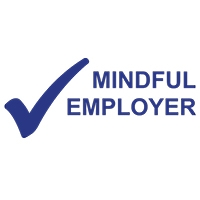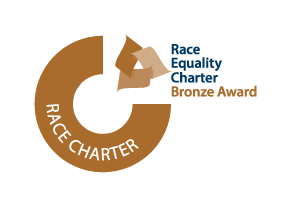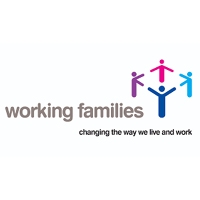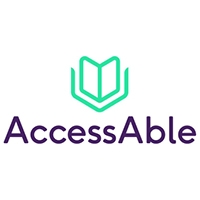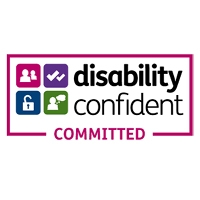
Sidebar navigation

Equality, Diversity and Inclusion
Different voices, one community
We are focused on building an inclusive culture
Different voices, one community – that makes a positive difference to the lives and experiences of our students and staff.
We know there is work to be done, but we are determined to create a community based on dignity and respect where everyone is able to thrive and reflect our University values to be ambitious, open and responsible.
Our three objectives are:
- To build a positive, inclusive culture that inspires staff and students to realise their potential.
- To work towards fair representation and fair outcomes for our staff and student communities.
- To develop a robust understanding of our Equality, Diversity and Inclusion (EDI) data to effect sound evidence-based decision making.
EDI Framework
We have an EDI Framework and EDI Governance Structure in place to help us achieve our objectives, which includes providing a greater voice to our staff and student networks and a new steering group with more senior leadership from across the University to drive forward the changes needed.
We also work collaboratively with organisations including Stonewall Diversity Champions, Mindful Employer, AccessAble, Disability Confident and Advance HE (including the Athena SWAN and Race Equality Charters), which provide guidance and advice on equality, diversity and inclusion.
Report and Support
Our Report and Support tool is available to report any issue of harassment, bullying, hate or violence involving or affecting someone who is a member of the University community. Issues can be made anonymously and by witnesses as well as those who have experienced issues – we want every incident to be recorded, and to ensure that everyone gets the right support.
Staff networks
Our Staff Networks are run by and for staff. Through the networks, our staff use their voice to inform and promote University policy.
Those involved in the networks share guidance and resources, and propose and decide on actions to improve our University culture.
All our networks are strengthened by a commitment to addressing gender-based inequality.
Our Staff Networks include:
- LGBTQ Staff network
- Women's Staff Network
- Parent and Carer Staff Network
- Disability Staff Network
- Multicultural Staff Network
- Neurodiverse Staff Network
- Race Equality Supporters Network
- Harassment Advisers Network
Equality Charters and Schemes
As part of our commitment to equality, diversity and inclusion, we hold university-level bronze awards for two national Advance HE Equality Charters – Athena SWAN and the Race Equality Charter. These awards recognise our commitment to building a positive and inclusive culture, enable us to continue to provide an honest assessment of equality, diversity and inclusion at the University, and identify good practice and actions we need to take to continue to improve and drive this forward.
Athena SWAN Charter
Since 2024, we have held a university-level Athena SWAN Silver Award, recognising our commitment to gender equality. In addition, 15 of our Schools and Faculties hold Athena SWAN Silver and Bronze awards in their own right.
For further information, please contact us at charters@port.ac.uk.
Race Equality Charter
In 2021, we achieved our Race Equality Charter Bronze Award as a result of as a result of our commitment to uplifting our Black, Asian and minority ethnic staff and students.
We aim to build a culture of openness and trust that allows for honest reflection and difficult conversations about race and acknowledges that racial inequalities exist.
We are one of 20 UK universities to be awarded the bronze Race Equality Charter award. No university has a silver or gold award, showing that universities across the country have much to do to tackle racial inequalities.
For further information, please contact us at charters@port.ac.uk.
Stonewall Diversity Champions
As part of our work to create an inclusive workplace for all LGBTQ+ staff, we’re members of Stonewall’s Diversity Champions programme. And we actively extend the same values to our students through our policies and standards, local sponsorships and support for University and local LGBTQ+ support groups and networks.
Find out more about LGBTQ+ equality at Portsmouth for resources, events, support groups, reporting procedures and policies.
AccessAble
Since 2015, the University has partnered with AccessAble (formerly DisabledGo) to support staff, students and visitors to arrive and move around our campus and buildings. University of Portsmouth Access Guides are available (please select the ‘Access Guides’ tab to then ‘view all access guides’).
Equality and diversity policies and reports
A selection of our equality, diversity and inclusion-related policies, data and reports include:
- Equality and Diversity Policy Statement
- Equality Impact Analysis Guidance
- Dignity and Respect Policy Framework
- Disability Guidance
- Faith and Belief Policy
- Student Charter and Undergraduate Hallmarks
- Access and Participation Plan 2020–25
Staff and student equity, diversity and inclusion data reports
The Public Sector Equality Duty, under the Equality Act 2010, requires public sector organisations to publish equality information and gender pay gap reports annually.
The University produces student and staff EDI reports, which include a wide range of EDI information and data. These are used to develop key performance indicators to monitor and address any issues that are identified.
A summary of the 2022-23 Equity Diversity and Inclusion (EDI) data can be seen below and this has been split into key themes that form part of the University’s EDI framework. The data is accepted and endorsed annually by the University Executive Board and the People, Culture & Engagement Committee.
Additional information is available in the University’s staff and student EDI reports, which are available upon request by sending an email to equality@port.ac.uk, or by calling +44 (0)23 9284 8484.
Composition 2022-23
- Over the last year there has been an increase in the proportion of female students (+1%), students with a disability (+2%) and LGBTQ+ students (+2%)
- Compared to last year, there has been an increase in the proportion of female employees (+1%) and ethnically diverse employees at the University in Academic and Research roles (+1%)
- The proportion of employees with a declared disability has increased in both Academic and Research roles (+1%), and Professional and Support roles (+1%)
- Gender: 51% Male; 49% Female
- Ethnicity: 71% White; 28% People of the Global Majority; 1% prefer not to say
- Disability: 72% Non-disabled; 27% Disabled
- Age on starting course: 89% aged under 25; 11% aged 25 or older
- Sexual orientation: 82% Heterosexual; 14% LGBTQ+; 4% undisclosed
- Gender: 53% Male; 47% Female
- Ethnicity: 810% White; 18% People of the Global Majority; 2% prefer not to say
- Disability: 84% Non-disabled; 12% Disabled; 3% prefer not to say
- Age: 28% aged under 36; 54% aged 36-55; 14% aged 56 or older
- Sexual orientation: 85% Heterosexual; 8% LGBTQ+; 6% prefer not to say
- Gender: 35% Male; 65% Female
- Ethnicity: 91% White, 8% People of the Global Majority, 1% prefer not to say
- Disability: 84% Non-disabled, 12% Disabled, 3% prefer not to say
- Age: 28% aged under 36; 54% aged 36-55; 18% aged 56 or older
- Sexual orientation: 85% Heterosexual; 8% LGBTQ+; 6% prefer not to say
Attraction and Access
Over the last year, there has been an increase in the proportion of men (+3%), and people with a disability (+4%) applying to study at the University
Compared to last year, there has been an increase in the proportion of ethnically diverse applicants applying for Academic/Research job vacancies (+7%); and LGBTQ+ applicants applying for Professional/Support job vacancies (+3%)
- Gender: 47% Male; 53% Female
- Ethnicity: 20% White; 9% People of the Global Majority; 71% undisclosed
- Disability: 76% Non-disabled; 24% Disabled
- Age: 91% aged under 25; 9% aged 25 or older
- Gender: 54% Male; 45% Female; 1% prefer not to say
- Ethnicity: 68% White; 28% People of the Global Majority; 5% prefer not to say
- Disability: 88% Non-disabled; 12% Disabled
- Age: 33% aged under 36; 54% aged 36-55; 13% aged 56 or older
- Sexual orientation: 79% Heterosexual; 10% LGBTQ+; 11% prefer not to say
- Gender: 35% Male; 63% Female; 1% self-describe; 1% prefer not to say
- Ethnicity: 85% White; 13% People of the Global Majority; 2% prefer not to say
- Disability: 84% Non-disabled; 16% Disabled
- Age: 60% aged under 36; 34% aged 36-55; 6% aged 56 or older
- Sexual orientation: 79% Heterosexual; 15% LGBTQ+; 7% prefer not to say
Recruitment, Selection and Offer
For job vacancies, ethnically diverse applicants were less successful in receiving a job offer than white applicants
- Gender: 26% Male; 22% Female
- Ethnicity: 25% White; 21% People of the Global Majority
- Disability: 21% Non-disabled; 33% Disabled
- Age: 23% aged under 25; 28% aged 25 or older
- Gender: 10% Male; 11% Female
- Ethnicity: 11% White; 7% People of the Global Majority Black Asian and Minority Ethnic
- Disability: 11% Non-disabled; 9% Disabled
- Age: 9% aged under 36; 13% aged 36-55; 15% aged 56 or older
- Sexual orientation: 11% Heterosexual; 10% LGBTQ+
Engagement and Wellbeing
Male students (and ethnically diverse male students, in particular) were less likely to contact Wellbeing services than female students
- Gender: 36% Male; 60% Female; 2% other; 2% undisclosed
- Ethnicity: 72% White; 27% People of the Global Majority; 1% undisclosed
- Disability: 70% Non-disabled; 23% Disabled; 7% undisclosed
Development and Progression
There is a 3 point gap between the withdrawal rate of male and female students
- Gender: 10% Male; 7% Female
- Ethnicity: 8% White; 10% People of the Global Majority
- Disability: 9% Non-disabled; 8% Disabled
- Age on starting course: 8% aged under 25; 10% aged 25 or older
Reward and Recognition
As is the case nationwide; there remains both a gender and ethnicity awarding gap at the University
- Gender: 72% Male; 79% Female
- Ethnicity: 80% White; 63% People of the Global Majority
- Disability: 76% Non-disabled; 75% Disabled
- Age on starting course: 75% aged under 25; 80% aged 25 or older
Previous reporting
Find out more
LGBTQ equality
Find out how we're championing a culture of inclusivity and acceptance through events, community sponsorship, staff and student training and supporting resources.

Race equality
Discover more about the work we're doing to represent, support and uplift our diverse community through events, staff and student networks, staff training and scholarships.

Discover more about our work
If you have questions relating to Equality and Diversity, please email equality@port.ac.uk.

